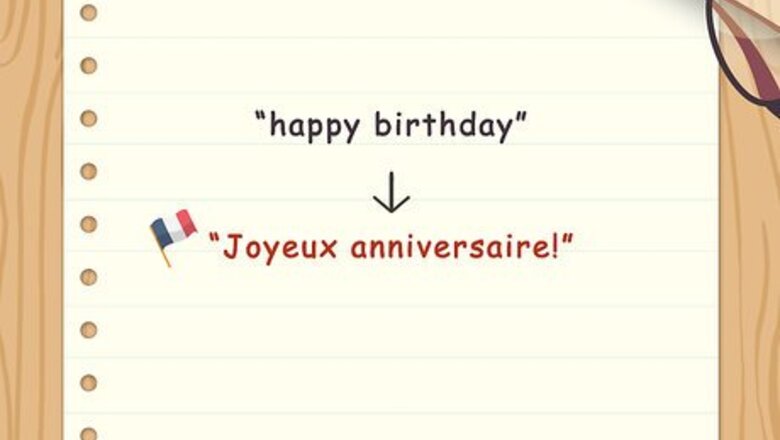
views
Standard Birthday Wishes
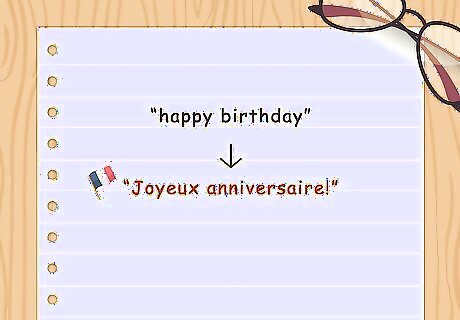
Exclaim "Joyeux anniversaire!" This is the first of two standard “happy birthday” greetings used in France. Note that you can use this saying in Quebec and other French-speaking parts of Canada, but it is not the most common way to offer birthday wishes there. This phrase translates directly into "happy birthday." Joyeux means "happy," "joyful," or "gleeful." Anniversaire can mean "birthday" or "anniversary," but when said alone, it most commonly refers to one's birthday. To refer to a wedding anniversary, you would say "anniversaire de mariage."
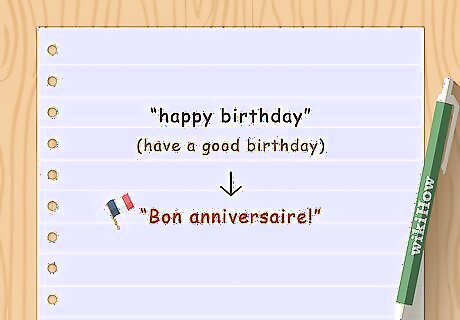
Switch to "Bon anniversaire!" This is the second of two standard “happy birthday” greetings used in France. As with joyeux anniversaire, bon anniversaire can be used and understood in French-speaking parts of Canada, but it is not the most common birthday greeting there. Bon usually means "good" or "well." As such, this phrase translates more directly to "have a good birthday" rather than "happy birthday."
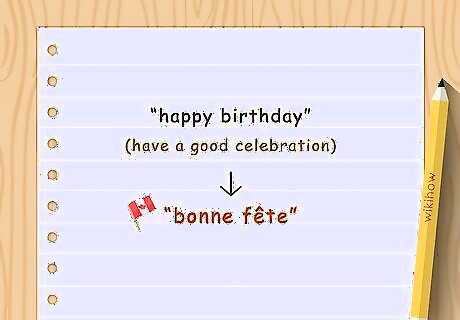
Use "bonne fête" in French-speaking Canada. This is the most casual and commonly used way of saying “happy birthday” in French-speaking portions of Canada, like Quebec. Unlike "joyeux anniversaire" and "bon anniversaire," "bonne fête" cannot be used in both France and Canada. In France, "bonne fête" would usually be used when wishing someone a good "name day." One's "name day" refers to the feast day of the saint one is named after. Bonne is the feminine form of the word "bon", meaning "good" or "well." Fête means "celebration." Translated more directly, "bonne fête" means "have a good celebration." Learn regional birthday wishes for French-speaking areas. "I wanted to wish a Canadian friend happy birthday, but I had only learned French greetings used in France. Reading this helped me understand the subtle regional differences in birthday sayings. Now I know what's most common in different areas." - Leon R. Use French birthday phrases for language practice. "I'm teaching myself French, so having various birthday greetings to try out allows me to gain practical experience. Using them to wish my Francophone coworker a happy birthday let me apply what I've learned." - Christophe-Aaron H. We want to hear from you! Advice from our readers makes our articles better. If you have a story you’d like to share, tell us here.
Less Common Birthday Greetings
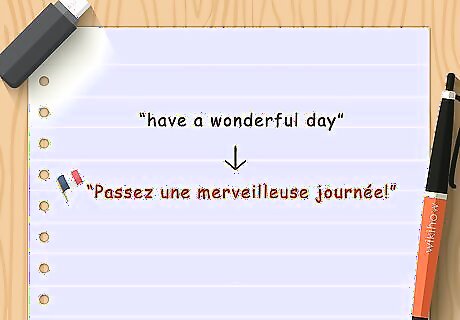
Offer "Passez une merveilleuse journée!" In English, this statement means “have a wonderful day.” Passez is a conjugated form of the French verb "passer," meaning "pass" or "spend." Merveilleuse translates into "wonderful." Une journée means "a day."
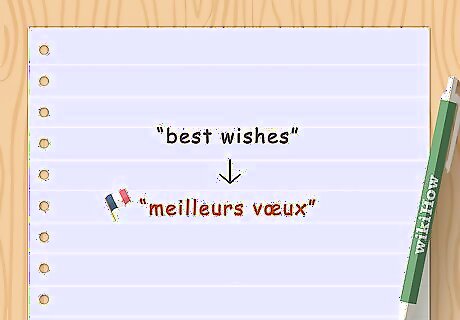
Tell someone "meilleurs vœux.” Use this phrase to express your "best wishes" to someone on his or her birthday. Note that this is not an especially common birthday greeting, but it is acceptable to use. Meilleurs translates into "best," and "vœux" translates into "wishes" or "greetings."
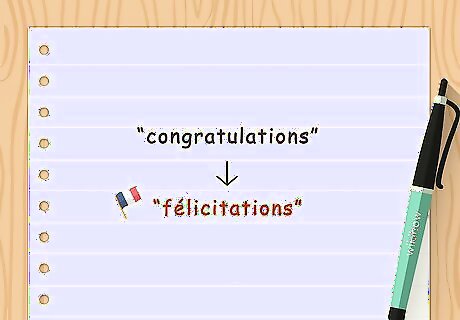
State "félicitations." Use this greeting to congratulate someone on his or her birthday. This is not an especially common way to wish someone "happy birthday," but it is slightly more common to congratulate someone on his or her birthday in France than in the United States. Félicitations translates directly to "congratulations" in English.
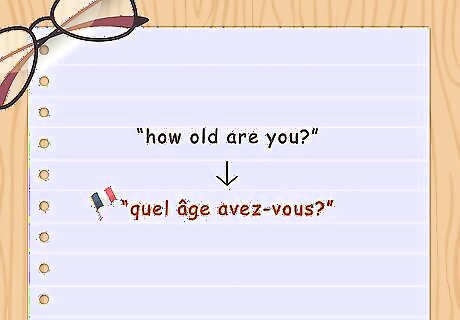
Ask "quel âge avez-vous?" This question is used to ask someone how old he or she is. Only ask this if you know the person well and have already wished him or her a happy birthday. This can easily be misconstrued as rude. You wouldn't ask a stranger how old they are in English, after all! Quel means "what" or "which." The French word "âge" means "age" in English.
Longer Birthday Wishes
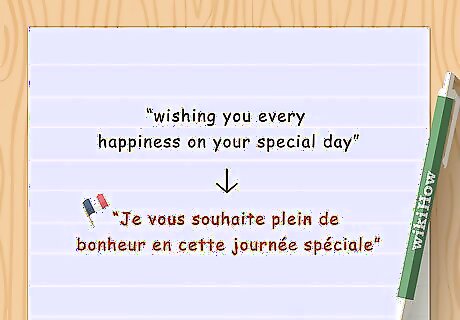
State "Je vous souhaite plein de bonheur en cette journée spéciale." This sentence roughly translates to "wishing you every happiness on your special day" or "I wish you lots of happiness on this special day." Je means "I" and vous is a direct object pronoun used to refer to "you." Souhaite means "wish," plein means "full," de means "of," and bonheur" means "happiness." En means "on," cette means "this," journée means "day," and spéciale means "special."
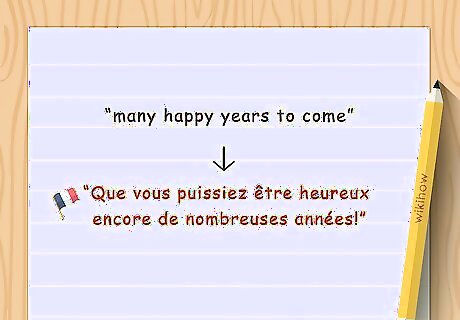
Tell someone "Que vous puissiez être heureux (or heureuse, if your interlocutor is female) encore de nombreuses années!" This sentiment means something along the lines of "many happy returns" or "many happy years to come." You are essentially wishing someone many more happy birthdays to come. Que here means "may," vous means "you," puissiez means "(to) be able," être means "(to) be," and heureux (-se) means "happy." Encore means "still" or "yet" and expresses the "still to come" part of this sentiment. Nombreuses means "many" and années means "years."
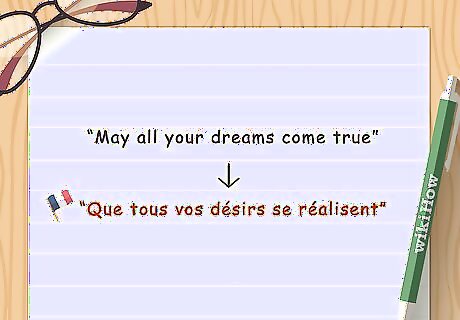
Wish "Que tous vos désirs se réalisent." This sentiment means "May all your dreams/wishes come true." Tous means "all" and vos means "your." Désirs can mean "desires," "dreams," or "wishes." Se réalisent means "to be brought about."


















Comments
0 comment